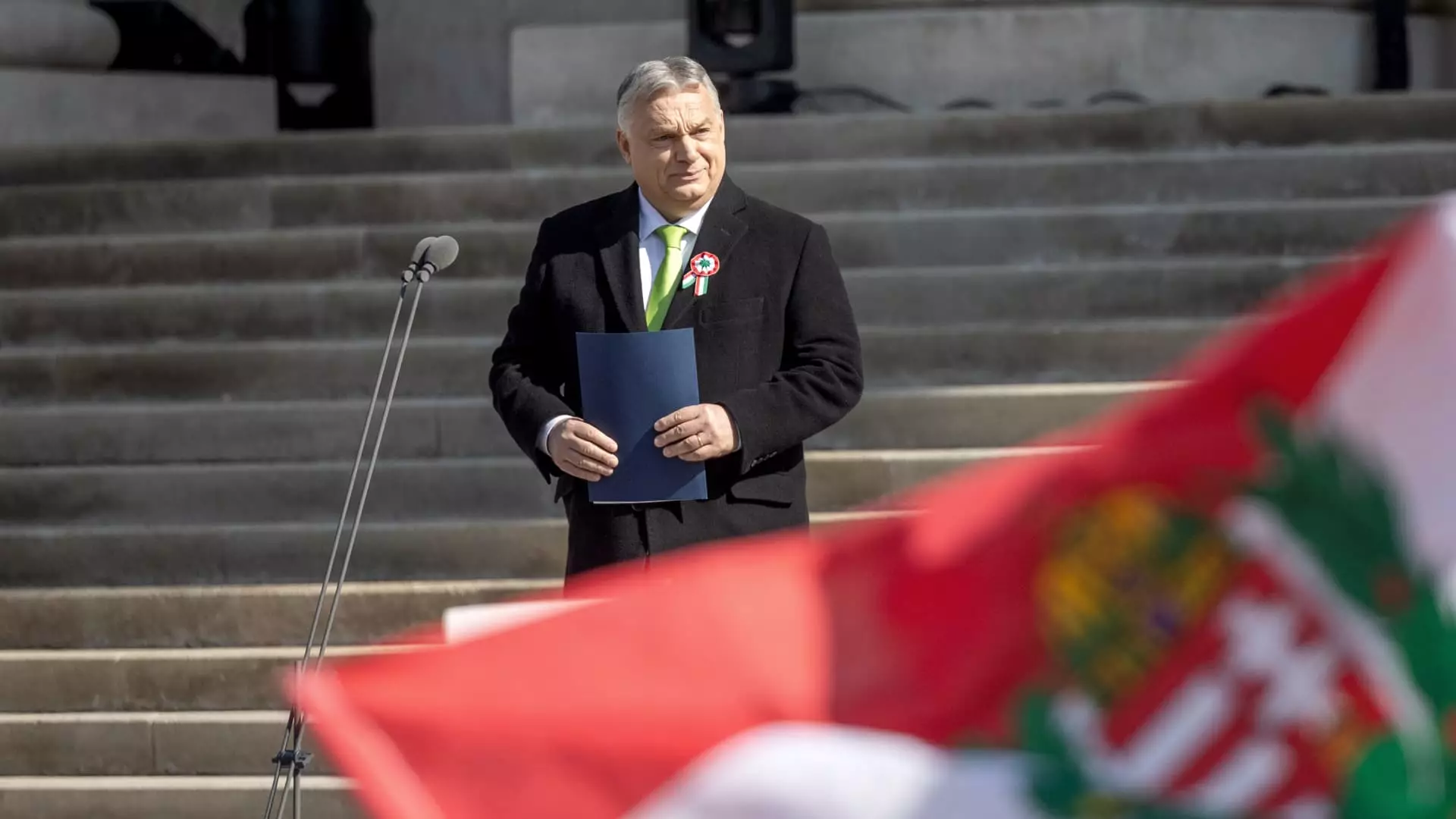In the midst of preparations for the European parliamentary elections in June, Hungarian Prime Minister Viktor Orban finds himself embroiled in political turmoil. His ruling party has been hit by two major scandals within a short span of six weeks, shaking the political landscape in Budapest. Orban, a longtime ally of former U.S. President Donald Trump and widely seen as a supporter of Russian President Vladimir Putin, has been a dominant figure in Hungarian politics since 2010, earning him the title of the EU’s longest-serving head of state. However, recent events have put his leadership under scrutiny as Hungary braces for both local and European elections.
The most recent scandal involves a little-known lawyer named Peter Magyar, who has published an audio recording alleging a cover-up of corruption by top officials close to Orban’s government. Magyar’s sudden rise to prominence has surprised many, as he has quickly gained traction by organizing large-scale demonstrations in Budapest and dominating the political discourse. This unexpected development points to a growing demand for new political leadership in Hungary, with Magyar emerging as a potential challenger to Orban’s Fidesz party. By tapping into disillusioned voters from both Fidesz and the opposition, Magyar aims to capitalize on the public’s dissatisfaction with the current political establishment.
The mounting pressure on Orban comes at a critical juncture, just months before Hungary’s parliamentary elections in 2026. Analysts warn that sustaining the momentum behind Magyar’s movement could be challenging, especially in the face of Fidesz’s strong control over the public media landscape. While the revelations of government wrongdoings have sparked public outrage and mobilized citizens to protest, the ruling party’s entrenched influence poses a significant obstacle to Magyar’s political aspirations. Moreover, the introduction of a new party into the opposition mix could inadvertently benefit Orban’s Fidesz in the upcoming elections, as smaller parties risk diluting the overall opposition vote share.
As Hungary grapples with these political upheavals, the future remains uncertain for Orban and his government. The ongoing scandals have exposed vulnerabilities within the ruling establishment, prompting calls for accountability and transparency from the public. The upcoming European parliamentary elections in June will serve as a litmus test for the country’s political landscape, determining the extent to which Orban’s grip on power remains unchallenged. Magyar’s swift rise to prominence underscores the desire for change among Hungarian voters, who are eager to see a shift away from the status quo. Whether Orban can weather the storm of discontent and retain his position as Hungary’s leader remains to be seen, but one thing is clear: the winds of change are blowing in Budapest.
The political turmoil facing Hungarian Prime Minister Viktor Orban reflects a broader trend of public dissatisfaction with the current government. The emergence of new political forces and the exposure of corruption scandals have laid bare the challenges and uncertainties that lie ahead for Hungary. As the country prepares for crucial elections in the coming months, the outcome will not only shape its domestic politics but also have implications for its role within the European Union. Orban’s ability to navigate these turbulent waters will determine the course of Hungarian politics for years to come.

Leave a Reply